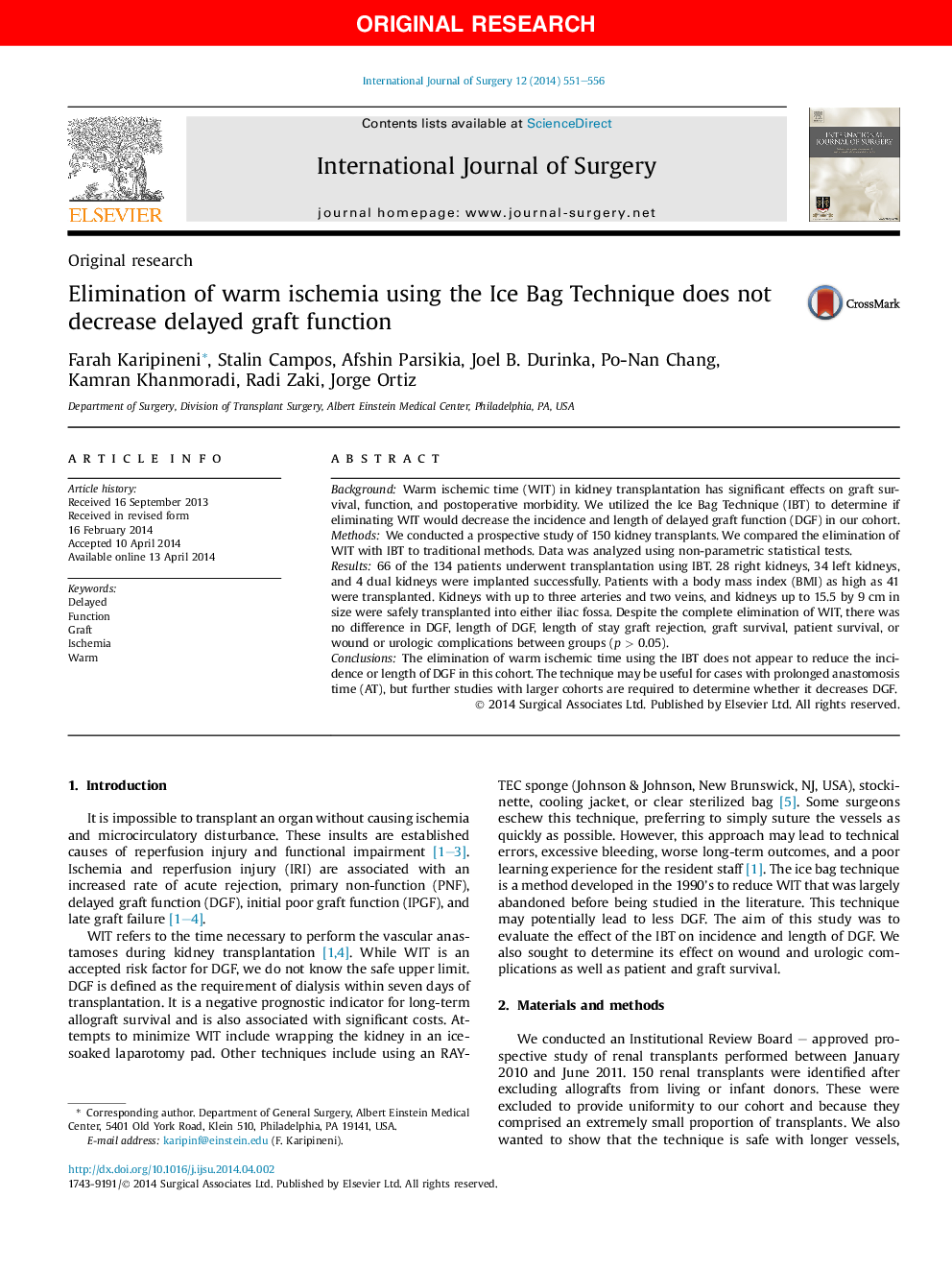| Article ID | Journal | Published Year | Pages | File Type |
|---|---|---|---|---|
| 4286615 | International Journal of Surgery | 2014 | 6 Pages |
BackgroundWarm ischemic time (WIT) in kidney transplantation has significant effects on graft survival, function, and postoperative morbidity. We utilized the Ice Bag Technique (IBT) to determine if eliminating WIT would decrease the incidence and length of delayed graft function (DGF) in our cohort.MethodsWe conducted a prospective study of 150 kidney transplants. We compared the elimination of WIT with IBT to traditional methods. Data was analyzed using non-parametric statistical tests.Results66 of the 134 patients underwent transplantation using IBT. 28 right kidneys, 34 left kidneys, and 4 dual kidneys were implanted successfully. Patients with a body mass index (BMI) as high as 41 were transplanted. Kidneys with up to three arteries and two veins, and kidneys up to 15.5 by 9 cm in size were safely transplanted into either iliac fossa. Despite the complete elimination of WIT, there was no difference in DGF, length of DGF, length of stay graft rejection, graft survival, patient survival, or wound or urologic complications between groups (p > 0.05).ConclusionsThe elimination of warm ischemic time using the IBT does not appear to reduce the incidence or length of DGF in this cohort. The technique may be useful for cases with prolonged anastomosis time (AT), but further studies with larger cohorts are required to determine whether it decreases DGF.
